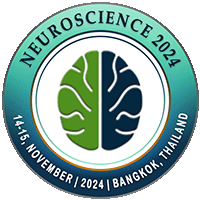
Robert R Traill
Melbourne University, AustraliaTitle: Hidden Brain-Mechanisms — a self-consistent new set of explanations which may be clinically useful
Abstract
To understand complex-and-capable mechanisms like the human brain, we need more than observation. By stressing the brain’s actual task-requirements, we can use detective work on indirect evidence, to “re-invent” the invisible bio-solutions. In this project, the conclusions (extending Piaget’s Theories) are surprisingly self-consistent, and answer several mysteries. Thus, for advanced thought (notably in the hippocampus and cortex), the coordinated hypotheses include:
(1) Advanced thought-storage requires linear digital media — provided by some of the “spare” ncRNA (97% of the total RNA in humans).
(2) Such molecular sites would intercommunicate optically, within myelinated axons serving as coaxial fibre-optic cables (in addition to their AP role) — predicted (1978, 1988), and such transmission recently demonstrated (2010, 2021).
(3) Synaptic/AP mechanisms play only a secondary analogue maintenance role in the CNS:— updating pathways (Hebb 1949), after the main signal has passed optically.
(4) Such optic main-signals would have some freedom to travel beyond their cables — and they probably need a digital addressing system (analogous to “lock-&-key” immunology).
(5) New “written” code would seldom-if-ever be transcribed like tape-recording, but instead use rapid pseudo-Darwinian selection from a host of RNA-fragments. (Feasible only thanks to ultraminiaturisation).
(6) Thus new hippocampus memory would probably not be “telephoned” to cortex (neither optically nor by AP) but instead “mailed” as ncRNA — by axon-transport using kinesin — &/or by blood-stream despite the BBB (Blood-Brain-Barrier).
(7) Etc.
•Some types of dementia could be due to BBB-obstruction, affecting (6).
•Sleep may be partly to allow for the slow “mailing”.
Any other clinical suggestions? Reference: https://doi.org/10.26502/jppd.2572-519X0175
Biography
Deliberately interdisciplinary:
PhD (General Systems Theory: Brunel University + Biological Bases of Behaviour: Open Uni, UK).
BSc (Physics, Zoology); BA (Psychology, Economics) — Melbourne University.
Associate HPS Melbourne University.

